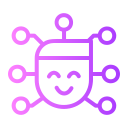AI and Automation: Transforming the Workplace
Artificial intelligence (AI) and automation have rapidly become integral components of the modern workplace, driving a paradigm shift in how organizations operate and deliver value. As businesses embrace these technologies, processes are being streamlined, efficiency is skyrocketing, and new opportunities for innovation are being unlocked across industries. Understanding the multifaceted impact of AI and automation is crucial for businesses looking to remain competitive in an ever-evolving landscape. This page delves into the transformative roles AI and automation play in reshaping the workplace, explores the challenges and opportunities they present, and sheds light on how companies can adapt to thrive in this new era.

Enhancing Productivity Through Intelligent Automation
Streamlining Routine Operations
AI-powered automation excels at streamlining routine, repetitive operations that would otherwise consume significant time and effort from employees. Tasks such as data entry, invoice processing, and simple customer queries are now swiftly managed by intelligent systems, reducing the risk of errors and ensuring consistency. As these operations become more efficient, organizations are able to redirect staff towards activities that require critical thinking and problem-solving skills, thus maximizing the value of their workforce. The cumulative effect is a more agile, responsive, and productive organization that can better meet the evolving demands of its market.
Accelerating Decision-Making Processes
The speed at which businesses must make decisions is accelerating, and AI offers the analytical power needed to keep up. By rapidly processing vast amounts of data and providing actionable insights, AI-driven systems empower professionals to make informed choices faster than ever before. Whether it’s optimizing supply chains or forecasting sales trends, automation facilitates quicker responses to changing circumstances. This enhances an organization’s ability to capitalize on new opportunities and mitigate risks effectively, fortifying its competitive edge in a fast-paced landscape.
Supporting Knowledge Workers with AI Tools
AI is not just for automating manual tasks—it also supports knowledge workers by providing intelligent tools for research, analysis, and creativity. From advanced document search platforms to predictive analytics engines, knowledge workers now have access to resources that amplify their capabilities. These tools allow professionals to uncover hidden patterns, generate innovative solutions, and collaborate more effectively across teams and locations. As AI tools become more sophisticated, employees can focus on higher-order tasks that drive progress, fostering a culture of innovation and continuous improvement.


Redefining Roles and Workforce Dynamics
With the introduction of AI and automation, job responsibilities are undergoing significant transformation. Routine and manual aspects of many jobs are being delegated to machines, while employees are taking on more complex duties that require critical thinking and emotional intelligence. The workforce is experiencing a shift from task-based roles to outcome-driven positions, emphasizing value creation over process adherence. This evolution necessitates continuous learning and flexibility, as professionals must constantly adapt to the changing nature of their work environment.
Addressing Job Displacement Concerns
One of the most widely discussed challenges associated with AI and automation is the risk of job displacement. As machines take over certain tasks, some roles become obsolete, leading to concern among employees and employers alike. Addressing these concerns requires transparency and proactive strategies—including clear communication about forthcoming changes and support for affected staff. Companies that prioritize redeployment, retraining, and internal mobility can mitigate the negative impacts of workforce displacement while fostering loyalty and resilience among their teams.
Navigating Ethical and Regulatory Considerations
AI and automation present a host of ethical and regulatory issues that organizations must navigate responsibly. From data privacy and algorithmic bias to transparent decision-making, companies are tasked with ensuring that their use of intelligent technologies aligns with broader societal values and legal frameworks. Establishing clear policies, promoting ethical AI development, and engaging stakeholders in discussions about responsible technology use are crucial. Organizations that lead with integrity and foresight will earn trust and set the standard for responsible innovation.
Driving Innovation and Creating New Opportunities
Beyond the challenges, AI and automation fuel innovation by enabling entirely new business models and revenue streams. Companies can leverage intelligent technologies to develop novel products, enhance customer experiences, and access previously untapped markets. Proactive adoption of AI-driven tools empowers organizations to stay ahead of competitors and thrive in rapidly changing environments. By embracing the transformative potential of these technologies, forward-thinking businesses can unlock unprecedented opportunities for growth and differentiation.
